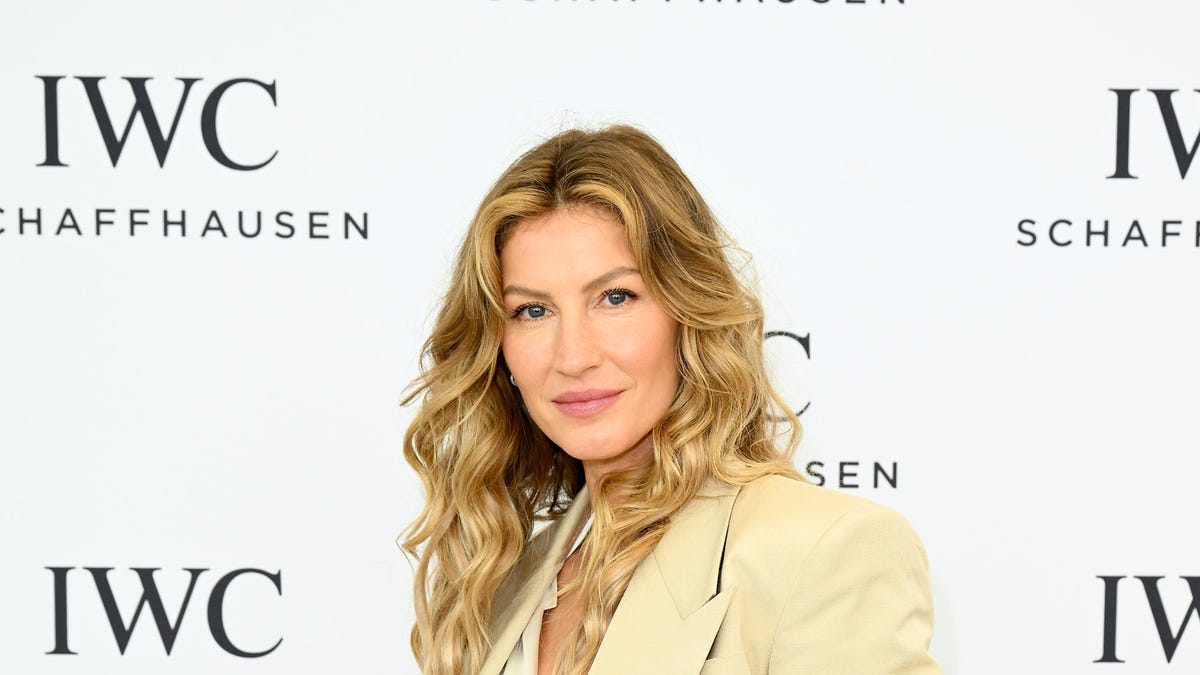Sean Combs’ names through the years: Puffy, P. Diddy, Love and more
Music mogul Sean Combs, who’s on trial for heading an alleged criminal enterprise, has gone by various names since he rose to fame in the 1990s.
NEW YORK — The jury in Sean “Diddy” Combs’ sweeping federal sex-crimes trial is set.
The one-time hip-hop mogul’s attorneys and prosecutors agreed on a slate of jurors who will ultimately decide Combs’ fate as he faces sex trafficking, racketeering and transportation to engage in prostitution charges.
Now, lawyers on both sides of the case are gearing up to deliver their opening statements to the jury, laying out their arguments on the allegations that stretch over decades.
One factor remained constant during the jury selection process: Potential jurors told the court over and over again that they’ve seen the much-talked-about video that allegedly shows Combs beating, kicking and dragging his ex-girlfriend Cassie Ventura Fine.
Jury candidates were also repeatedly asked if they, a family member or a friend had been a victim of sexual assault, sexual harassment or domestic violence, and whether they or a loved one had been charged or accused of such crimes.
The scene at the Daniel Patrick Moynihan United States Courthouse in Manhattan was chaotic on May 12. Supporters of the rapper, influencers and journalists surrounded the building – and even a ventriloquist performing nearby.
Diddy on trial newsletter: Step inside the courtroom as music mogul faces sex-crimes charges.
So what’s next?
Now that the panel of 12 jurors and six alternates is finalized, opening statements by the government and then the defense will begin. The prosecution would then call its first witness.
Over the course of a two-month trial, jurors are expected to hear testimony from three and possibly four of the rapper’s female accusers, as well as his former employees who prosecutors say helped arrange and cover up his actions.
Diddy lawyers accuse prosecutors of bias against Black jurors
As the jury approached finalization, Combs’ defense claimed prosecutors were unfairly excluding Black jurors.
“Your honor, the government has struck seven Black people out of nine strikes, which we believe amounts to a pattern,” Lead defense attorney Marc Agnifilo told the judge.
Prosecutors, in response, called their selections “very diverse” with “many non-white” jurors. One prosecutor ran through neutral reasons as to why they made the strikes the way they did: One juror said he had a lack of candor with past incidents with police. Another juror had “meandering and inconsistent answers,” the lawyer claimed.
Another juror “tried to walk that back” her statement that Combs is likely guilty of domestic violence in her jury questionnaire by later saying that victims can jump on a “bandwagon.”
The judge denied the defense’s applications about the jury strikes, with Subramanian saying the defense has “failed to show purposeful discrimination.”
Diddy appears upbeat as jury in sex-crimes trial selected
Combs, once again out of his jail garb, sported a light gray sweater and pants as the final jury was selected for his sex-crimes case.
Before the hearing, he pulled multiple notebooks from a bag and appeared to be taking notes throughout, seeming calm, collected, and in good spirits.
At one point, he waved to someone in the gallery, and when asked if he wanted more water responded, “I could use a little more if you don’t mind.”
Judge won’t suppress evidence from Combs’ LA and Miami homes
In a second legal blow to Combs on May 9, Subramanian said he won’t suppress evidence the government got from searching Combs’ iCloud accounts, two cell phones, his Los Angeles and Miami homes and his own body.
Prosecutors have said law enforcement seized drugs and more than 1,000 bottles of baby oil and lubricant from the two homes. Such supplies were used at “Freak Off” parties where, at least some of time, women were forced or coerced into sex acts, according to the allegations.
Combs failed to show the government intentionally misled a judge in order to get warrants for those searches, Subramanian said.
– Aysha Bagchi
Judge rejects Diddy’s racial bias allegations, upholds charges
Combs was hit with a major legal blow May 9, just before the defense team and prosecutors entered into their final weekend of preparation for opening statements.
Subramanian rejected Combs’ request to dismiss charges that he transported people for prostitution. Those charges amount to two of the five criminal counts he faces.
Combs alleged that prosecutors brought the transportation charges against him “because of his race,” and that they leaked damaging material “to humiliate” him. He offered examples of others who may have done the same thing but weren’t Black and weren’t prosecuted, and said his charges should therefore be thrown out.
However, Subramanian agreed with prosecutors that Combs was different from the others he pointed to, in part because of the severity of what he allegedly did: Combs is charged with sex trafficking and racketeering – not just transporting people for prostitution.
“Combs doesn’t point to any evidence that racial bias played a role in the Government’s actions, that the prosecution team was responsible for any leaks to the press, or that the way Combs’s homes were searched bespeaks a discriminatory purpose,” Subramanian added.
– Aysha Bagchi
After three days of questioning dozens of people who received jury summons, the judge, prosecution and defense arrived at 45 potential jurors. Two of those people, however, were dismissed May 9.
One candidate sent an email overnight asking to be excluded over “issues of personal well-being,” while the other was eliminated after they were discovered to have an active lawsuit against the city of New York that they did not disclose in their interview or questionnaire.
When court was last in session on May 9, there was a lengthy back-and-forth about how the defense team would be able to cross-examine prosecutors’ star witness, referred to as Victim-1 and believed to be Combs’ ex-girlfriend, Casandra “Cassie” Ventura Fine.
Rather than deny any violence in the relationship, Combs’ lawyers said they want to show there was “mutual violence in their relationship” and “hitting on both sides” in an attempt to cast doubt on the prosecution’s argument that she was “coerced.”
Lead defense attorney Marc Agnifilo has previously painted Cassie and Combs’ nearly decadelong relationship as having “a certain level of toxicity and drug use” — but no sex trafficking. Contrary to this, Cassie’s since-settled bombshell 2023 lawsuit alleged rape, sex trafficking and years of physical abuse took place during their time together.
The judge, declining to issue a final decision on the matter until May 12, suggested there may be holes in that argument. “Strong people can be coerced, just like weak people,” he said.
Combs’ legal team hoped to exclude one piece of evidence from the trial: a 2005 photograph of “Victim-1,” prosecutors’ star witness, who is believed to be Ventura Fine.
The photo shows “Victim-1” smiling with her best friend, who will also be a trial witness. Prosecutors explained that “this is what these individuals looked like shortly after Victim-1 met the defendant,” and that it will help establish for the jury what Victim-1’s life looked like before any alleged incidents with Combs occurred.
Victim-1 was 19 when the photo was taken, and it was roughly nine or 10 months before she signed with Combs’ record label, prosecutors said.
The defense called the photo “low value,” and Judge Subramanian said, “It doesn’t really establish anything, it seems like more of a demonstrative” piece of evidence. However, he will allow the image to be included in the trial.
Combs seemed in good spirits after entering the courtroom on May 9. He wore a blue sweater again with a white button-up collared shirt underneath. He had glasses on and was seen smiling and laughing with one of his attorneys before the hearing got underway.
During a short break, he got up and looked around the gallery. A few of his supporters were there, and he clasped his hands together and bowed his head, appearing to mouth “thank you” to them.
Lisa Bloom, an attorney representing two accusers in civil cases against Combs and one in his criminal case, pointed to the “sad” number of potential jurors who have told the court they or a loved one is a sexual assault survivor.
Jurors have repeatedly been asked about sexual assault and harassment due to the nature of Combs’ case, and almost all have said they have some personal connection to the crimes. “It’s still quite a large number,” Bloom told NewsNation’s “Banfield” during a May 2025 appearance. “And if you break it down to the female jurors, even larger.”
Bloom is representing at least two of Combs’ accusers, including Danity Kane member Dawn Richard, a prominent Combs collaborator who accused him of physical and sexual abuse in a 2024 lawsuit.
Richard claimed the producer stole her work, withheld payment and subjected her to “inhumane” working conditions, which included assault, groping and false imprisonment, for nearly a decade. Combs’ attorney denied the allegations at the time the lawsuit was filed.
“Do You Believe Me Now?,” a memoir from R&B singer-songwriter Al B. Sure!, has received a Sept. 9 release date, Simon & Schuster announced on May 9. Sure! was romantically involved with Combs’ longtime girlfriend Kimberly Porter prior to her relationship with the hip-hop mogul. He and Porter shared a son, actor and singer Quincy Brown, whom Combs has referred to as his stepson.
According to a press release, the book is a “survivor’s memoir” that will include details on the singer’s relationship with Porter, a 2022 health scare and Sure!’s “shocking ties to Diddy.”
“Days after Homeland Security raided Sean Combs’ compounds in a federal sex-trafficking investigation, the multiplatinum R&B legend Al B. Sure! declared that when people heard how he wound up in a coma two years earlier, they were ‘really going to need to call Homeland Security,’” the release stated. The announcement comes after a jury candidate was dismissed on the first day of Combs’ trial due to her connection to the publishing company. The woman, a chief marketing officer at Simon & Schuster, was excluded for cause after revealing the company is publishing Sure!’s memoir. The prospective juror said she would “be unlikely to read that book,” but the judge still said this was “too close to home.”
Combs is facing federal sex-crimes and trafficking charges in a sprawling suit that has eroded his status as a power player and kingmaker in the entertainment industry.
He was arrested in September 2024 and has been charged with racketeering, sex trafficking and transportation to engage in prostitution. He has pleaded not guilty to all five counts.
Racketeering is the participation in an illegal scheme under the Racketeer Influenced and Corrupt Organizations Statute, or RICO, as a way for the U.S. government to prosecute organizations contributing to criminal activity.
Per Combs’ indictment, prosecutors say his racketeering activity included “multiple acts of kidnapping,” arson, bribery, witness tampering, forced labor, sex trafficking, transportation for the purposes of prostitution and distribution of narcotics.
His indictment emerged alongside dozens of separate civil suits suggesting a pattern of abusive behavior and exploitation spanning decades, including accusations of rape, sexual assault and physical violence.
The exact length is unknown, but the jury questionnaire had an approximate timeline for those who might be called to serve.
The 17-page document, reviewed by USA TODAY, stated: “The trial is expected to last about eight weeks.”
Despite repeated attempts at bail, Combs was ordered to remain in custody at the Special Housing Unit in Brooklyn’s Metropolitan Detention Center ahead of trial — a ruling his legal team has challenged in the Second Circuit Court of Appeals. He’s been jailed since his arrest on Sept. 16, 2024.
The trial will not be televised, as cameras are typically not allowed in federal criminal trial proceedings.
USA TODAY will be reporting live from the courtroom.
Contributing: USA TODAY staff; Reuters





